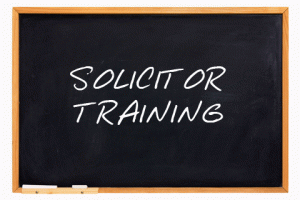What makes a good non-profit organization solicitor? What are the roles of a solicitor? NOTE: When we say solicitor here, we mean an employee of the organization who advocates for and takes in donations.
One of the most important roles of a solicitor is being the authenticator. This encompasses a passion for the cause and a comprehensive knowledge of the organization.
The most important attribute of the authenticator is being authentic; being real and believable. The authenticator must come across to the donor as real and believable. If the solicitor cannot embody these qualities, the audience/donor will lose interest and will walk away.
Without an air of authenticity, you will come off as the dreaded, clichéd telephone solicitor. Even if you are sitting directly in front of the donor, your audience will be never be receptive if you are simply reciting a mental script.
By definition, being authentic is being sincere and real. So how can you, as a solicitor, embody authenticity and realness?
- First and foremost, you need to understand why your organization does what it does it.
- Second, you must have extensive knowledge about how your organization operates.
- Third, you really need to know the tangible impact your organization has on the world.
- Fourth and finally, all of this information should be paired with an earnest passion that gives your understanding a sense of genuineness.
Even if you do not persuade an individual to financially contribute to your cause, the authentic passion and understanding you share will always be noticed and appreciated.
So now as a solicitor you have passion and knowledge. The next step, a truly daunting hurdle, is ‘myopia’. Medically, myopia is the condition of seeing sharply only those things that are right in front of you. In the world of philanthropy, it is about honing in on your own point of view.
When communicating with a donor, you need to be aware of the language you use and the way you speak. It’s a fine line between not assuming total ignorance on the part of the individual, and not making assumptions about their knowledge so you leave them in the dust. Though you have read the mission statement a thousand times and know the operations of all the major North American NGOs, spewing out a long list of public sector acronyms will undoubtedly alienate you from your donors.
So what should you, as a solicitor, takeaway from this?
- First, no matter how good an idea is, it will never be able to sell itself.
- Second, understanding why someone would naturally support you is critical.
- Third, take this knowledge to craft a message that makes sense to donors.
- Fourth, never forget that donors are the drivers; the individuals that push philanthropy with their visions and values.

